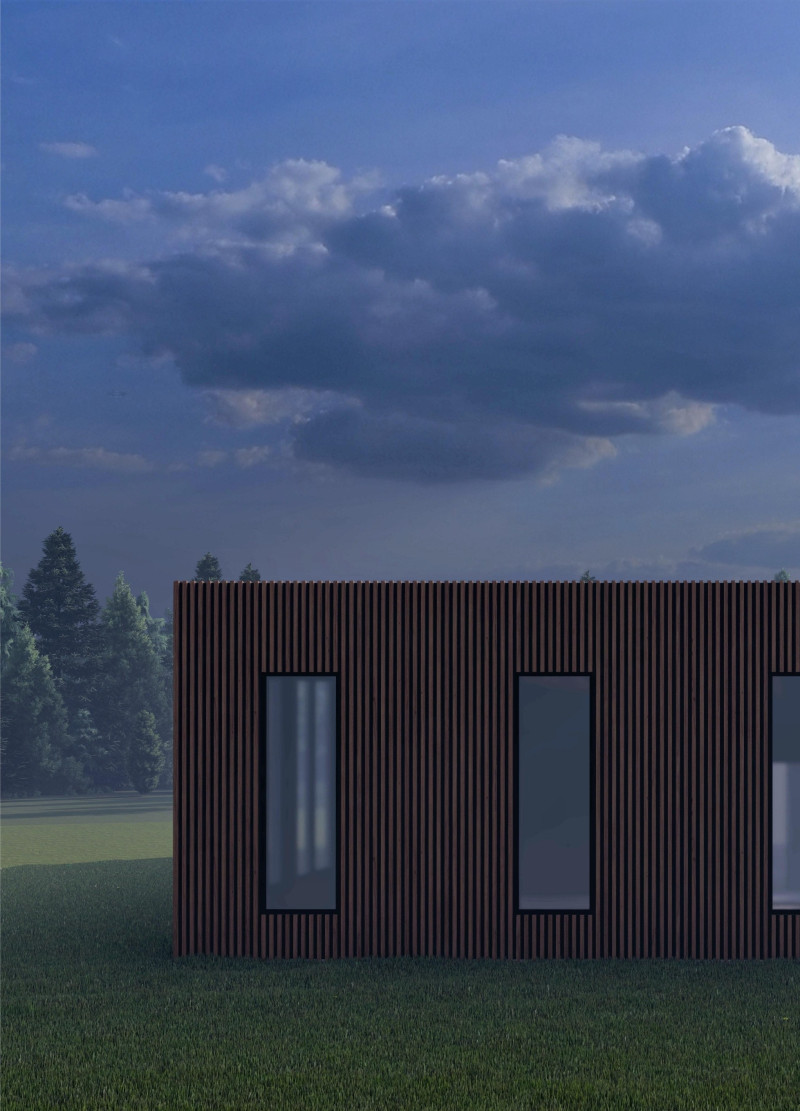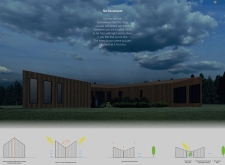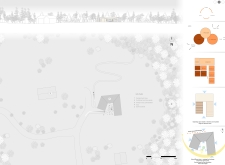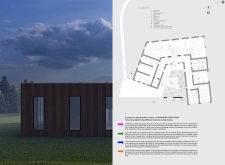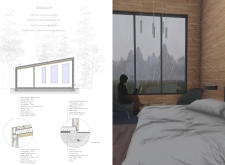5 key facts about this project
Latvian Vernacular Wooden Homes presents a thoughtful approach to living in harmony with nature. Located in a rural area, the setting encourages a connection between the residents and their surroundings. The design concept revolves around the idea of NATUconnect, highlighting the significance of nature in daily life. The aim is to create a space that accommodates both private reflection and community interaction, providing a well-rounded living experience.
Spatial Organization
The layout is carefully planned to prioritize both function and tranquility. Spaces are clearly defined and organized, which helps to create a logical flow throughout the guest house. Key features include a living room, kitchen, yoga and meditation areas, and several bedrooms. Each space is positioned to capture views of the forest and lake, allowing residents to engage with the landscape. This arrangement promotes relaxation and encourages social connections among guests.
Material Choices
The materials used reflect local building traditions while meeting modern needs. Exterior wooden cladding is a prominent feature, honoring the region’s architectural history. This choice also contributes to energy efficiency. Additionally, roofing underlayment, insulation layers, and wooden finishes are utilized to enhance comfort within the home. These materials not only support sustainable practices but also connect with the cultural heritage of Latvia.
Community Engagement
A significant element of the design is the intention to foster community. Specific areas for tea production, including a making workshop and drying facilities, are included to promote interaction among guests. These spaces invite collaboration and shared activities, linking visitors to local customs and traditions. The layout encourages a sense of togetherness and creates opportunities for learning and connection.
The arrangement of the guest house allows for a strong interaction with the natural environment. Each space is filled with light and designed to let nature play a role in the daily lives of residents. Overall, the design offers a living experience that respects both craftsmanship and the soothing qualities of the landscape.


